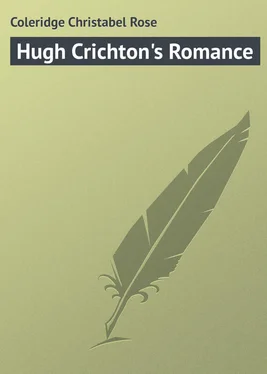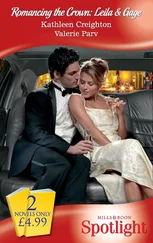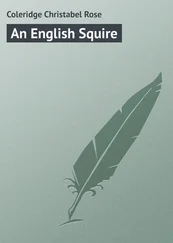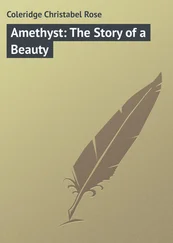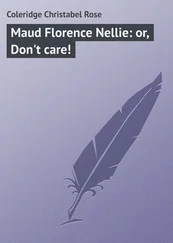Christabel Coleridge - Hugh Crichton's Romance
Здесь есть возможность читать онлайн «Christabel Coleridge - Hugh Crichton's Romance» — ознакомительный отрывок электронной книги совершенно бесплатно, а после прочтения отрывка купить полную версию. В некоторых случаях можно слушать аудио, скачать через торрент в формате fb2 и присутствует краткое содержание. Издательство: Иностранный паблик, Жанр: foreign_prose, на английском языке. Описание произведения, (предисловие) а так же отзывы посетителей доступны на портале библиотеки ЛибКат.
- Название:Hugh Crichton's Romance
- Автор:
- Издательство:Иностранный паблик
- Жанр:
- Год:неизвестен
- ISBN:нет данных
- Рейтинг книги:4 / 5. Голосов: 1
-
Избранное:Добавить в избранное
- Отзывы:
-
Ваша оценка:
- 80
- 1
- 2
- 3
- 4
- 5
Hugh Crichton's Romance: краткое содержание, описание и аннотация
Предлагаем к чтению аннотацию, описание, краткое содержание или предисловие (зависит от того, что написал сам автор книги «Hugh Crichton's Romance»). Если вы не нашли необходимую информацию о книге — напишите в комментариях, мы постараемся отыскать её.
Hugh Crichton's Romance — читать онлайн ознакомительный отрывок
Ниже представлен текст книги, разбитый по страницам. Система сохранения места последней прочитанной страницы, позволяет с удобством читать онлайн бесплатно книгу «Hugh Crichton's Romance», без необходимости каждый раз заново искать на чём Вы остановились. Поставьте закладку, и сможете в любой момент перейти на страницу, на которой закончили чтение.
Интервал:
Закладка:
“No, you cannot say that. I will tell you what to say. Say you have promised to be my wife, my darling; and it does not matter if you act well or ill. Listen to me one moment. Signorina, I love you; though I cannot tell you so in persuasive words. If you will trust me for a little while, I will come back and bring my mother, who will welcome you and love you. Can you care for me, Violante?”
Hugh, scrupulous and self-conscious, wasted many words. He had said within himself that he would show more deference to Violante than he would have thought necessary to a princess; that with his first words he would make it plain, both that there were difficulties, and that he would overcome them. There was a suppressed fire in the eyes generally so quiet, and a sort of courtliness in the manners that were sometimes so stiff, a deference that would soon be tender, an earnestness just held back from passionate force.
Violante heard but three words: “I love you.” Shy as she was, she was utterly trustful, and was too innocent and too fervent for any pretence of coyness.
“Do you love me, Violante?”
“Oh, yes!” and she let him take her in his arms, while her tears fell with the soft relief of having found a comforter. She was won, this little southern Juliet, won – ah, how easily! – and Hugh vowed to himself that he would justify her innocent trust, and give her all she knew not how to demand.
“You are not frightened now, my child?”
“Oh, no!”
“Let me look and see;” and, as Hugh drew away the veiling fingers, she did not shrink from the kiss that came in their stead.
“What will father say?” murmured she presently.
Now, it would have suited Hugh better could he have left Signor Mattei in ignorance until he had settled the affair with his own people; but he was too generous to involve Violante in the toils of a secret. Never should she be tempted by him to one doubtful action. So he answered —
“That I will soon find out; and to do so, my darling, I must go.”
And so, with many tender words, and with a wonderful delight in his own love as well as in the sweet child who had awakened it, Hugh took his leave for the present; and she, who was conscious of no delight but ill him, watched him for a moment, then came and turned the old lock of the door, which he suddenly found so perplexing; so that, as he went away, he saw her standing in the dim, lofty corridor, with the sunlight shining halo-wise behind her hair, and the still brighter aureole of his passionate fancy glorifying her innocent face.
Part 2, Chapter IX
Contrasts
“There’s none so sure to pay his debt.
As wet to dry, and dry to wet.”
Part 2, Chapter X
The Time of Roses
“When all the world was young, lad,
And all the trees were green.”
While the bright southern sunshine was filling the old palace with its rays; and while, beneath the blue Italian sky, Hugh Crichton was arranging Violante’s flowers; the same fair summer weather was making life enchanting in the English county where Oxley lay. Instead of deep, unbroken azure, see a paler tint, with fleecy, snowy clouds; and, for the fretwork and the imagery, the marble, and the alabaster of Civita Bella, broad, green, low-lying meadows, where dog-roses tossed in the hedges, and dog-daisies and buttercups were falling beneath the scythe; a slow, sleepy canal, with here and there a bright-painted boat; and, on the low hill side, the clustering white villas and modern streets, surmounted, not by innumerable pinnacles and domes, but by one tall, grey spire.
Oxley was a large, flourishing town, some forty miles from London – next to the county town in dignity, and before it in size and enterprise. It could boast no architecture and no antiquities, save a handsome church – neither very old nor very new – and some tumble-down, red-tiled, dirty streets, sloping down from the back of the town to the canal – unless, indeed, like some of its townsmen, you counted the Corinthian façade of the railway station, the Gothic gables of the new Town-Hall, or the sober eighteenth-century squareness of the Oxley Bank. These two latter public buildings opened on to a broad, sunny market-place; from which started a clean, white, sunny road, which led past villas, nursery gardens, meadows, and bits of furzy, heathery waste, all the way to Redhurst, and was the old coach-road from the county town to London.
Along this road were the prettiest residences, the gayest little conservatories, the most flowery lilacs, laburnums, and acacias of suburban Oxley. Here was the “best neighbourhood,” and here, on the clean, gravelled footway, the nursery-maids and children went to walk on fine mornings; ladies and little dogs paid calls of an afternoon; and groups of slim, long-haired girls came out to attend classes at Oxley Manor, the famous Young Ladies’ School. The Manor House lay back from the road behind high, substantial, red-brick walls, with mossy crevices, and bushy ivy peeping over the top; showing beyond, garden trees, walnuts, acacias, and horse-chestnuts, surrounding the big, substantial house, where, from the small-paned windows, peeped now and then a girl’s face.
There was no better school in the country than the Miss Vennings’ at Oxley Manor; and it was considered a great privilege for the girls of Oxley that certain classes there were opened to them; and a still greater that Miss Spencer and Miss Crofton were allowed to attend regularly as day scholars. But these young ladies did not come from Redhurst by the road. There was a pretty, quiet path through the meadows – half-way between the public road and the towing-path by the canal – that led here through a bit of copsewood famous for primroses, there across a sunny, open meadow; now over a low, wooden stile, then between high hedges, full of brambles, honey-suckles, and roses; till the hedges grew neater and closer, and terminated in the high red wall of the Manor kitchen-garden, from which opened a little green gate. On the other side of the road was a paddock, with a shallow pond where ducks flourished, and where, on the opposite bank, an old pollard willow threw its slender branches across the muddy water.
On that sunny afternoon a sunnier spot could hardly have been found than the narrow path under the wall; and yet here lingered two figures: a girl, who had poised herself on the end of a great garden-roller, and a young man who leaned against the white railing of the pond beside her. She was a graceful little lady, small and soft-faced; with brown hair, shining and neat, round rosy lips, and clear, steady eyes of a hazel tint. Her white dress was elaborately trimmed with handsome embroidery, and all her blue ribbons were fresh and smart, as if they had no need to see sunny days enough to dim their brightness. There was a bag of books at her feet, and her pretty eyes were cast down towards them; and her pink cheeks were flushed with considerable, yet not excessive, embarrassment.
“But, Arthur,” she said, with a clear, distinct, and yet soft utterance, “but, Arthur, I think we ought to consider about it a great deal.”
“I have never considered it at all,” said Arthur Spencer.
He was a tall young man, slight and graceful; with – spite of his second class and his cultivated expression – a sort of happy-go-lucky air, that seemed hardly to have outgrown the right to his old appellation of a “very pretty boy,” earned by his bright colour, dark hair, with a picturesque wave in it, and black-lashed eyes, of that distinct shade of grey which cannot be mistaken for blue or hazel. He was an elegant, rather handsome young man at three-and-twenty, with a light-hearted, self-reliant manner that might have been careless and even conceited had a less earnest and genuine affection looked out from his bright eyes at the pretty creature beside him. Arthur thought himself clever, good-looking, rather a fine fellow in his way; but what did he not think of Mysie Crofton?
Читать дальшеИнтервал:
Закладка:
Похожие книги на «Hugh Crichton's Romance»
Представляем Вашему вниманию похожие книги на «Hugh Crichton's Romance» списком для выбора. Мы отобрали схожую по названию и смыслу литературу в надежде предоставить читателям больше вариантов отыскать новые, интересные, ещё непрочитанные произведения.
Обсуждение, отзывы о книге «Hugh Crichton's Romance» и просто собственные мнения читателей. Оставьте ваши комментарии, напишите, что Вы думаете о произведении, его смысле или главных героях. Укажите что конкретно понравилось, а что нет, и почему Вы так считаете.
